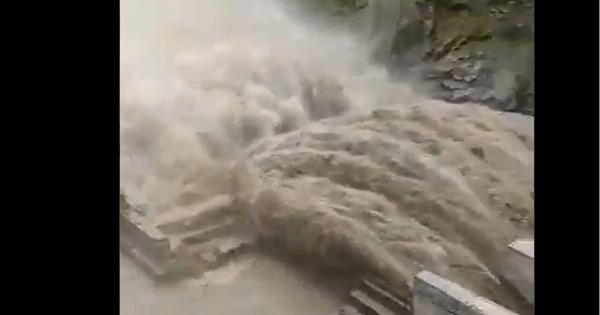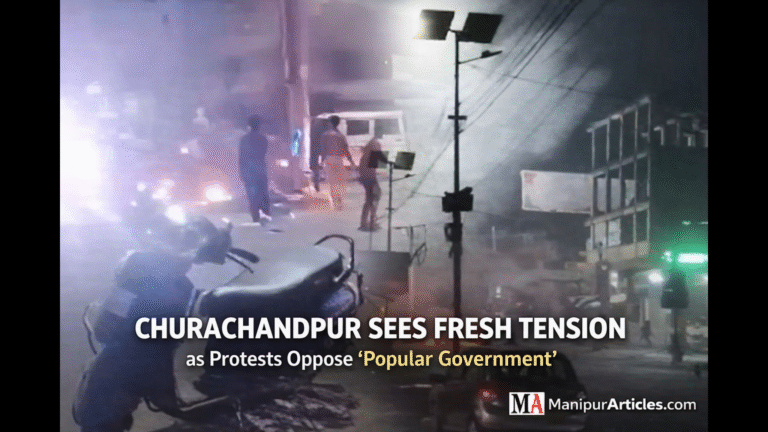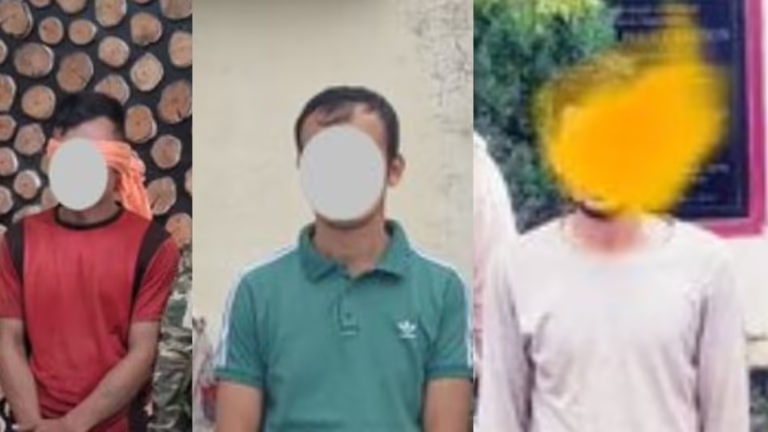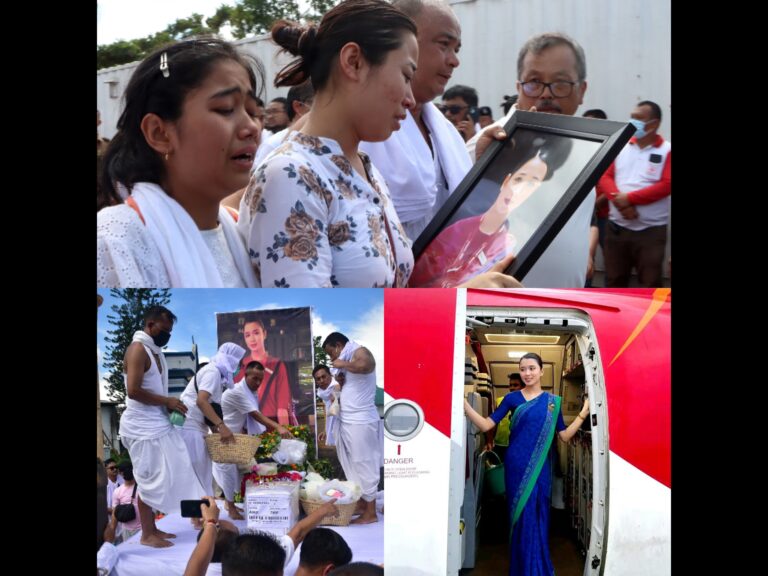Supreme Court Relieves Datla Sreenivasa Varma as SIT In-Charge of Manipur Extra-Judicial Killings Probe: An In-Depth Analysis
Summary of the News Article
In a high-profile decision, the Supreme Court has relieved Datla Sreenivasa Varma from his position as the Special Investigation Team (SIT) in-charge of the Manipur extra-judicial killings probe. This move comes amid growing public scrutiny and debates about accountability and transparency in handling such sensitive cases. The ruling has sparked discussions on the proper handling of investigations into alleged state-sponsored violence and the challenges faced by judicial bodies in maintaining the balance between justice and political pressures.
When the wheels of justice turn, sometimes the path isn’t as straightforward as we’d hope. Recently, the Supreme Court made headlines by relieving Datla Sreenivasa Varma of his role as the SIT in-charge of the Manipur extra-judicial killings probe. This decision has set off waves of discussion, raising questions about accountability, transparency, and the complexities involved in handling cases that touch upon the delicate balance of state power and citizens’ rights.
In this article, we’re going to break down everything you need to know about this decision. We’ll explore the context of the probe, why Varma’s removal matters, and what this could mean for future investigations into extra-judicial killings in Manipur. So, let’s dive right in and explore this multifaceted issue step by step!
Understanding the Background: The Context of the Manipur Probe
Manipur, a state known for its rich cultural heritage and vibrant communities, has also been a hotspot for controversies surrounding law enforcement and state actions. Over the past few years, allegations of extra-judicial killings have cast a shadow over the region, igniting debates about human rights, state accountability, and the proper functioning of the justice system.
Extra-judicial killings—where individuals are killed by state authorities without formal judicial proceedings—are a serious matter. They not only raise ethical and legal questions but also erode public trust in the institutions meant to protect citizens. The probe into these killings was launched to ensure that the truth is unearthed, those responsible are held accountable, and justice is served. At the helm of this critical investigation was Datla Sreenivasa Varma, who was tasked with leading the Special Investigation Team (SIT).
But as is often the case in high-stakes investigations, the process is far from simple. Political pressures, public outcry, and the inherent challenges of investigating state actions all contribute to a complex environment where decisions can have profound implications.
The Role of the Special Investigation Team (SIT) in Sensitive Probes
Imagine the SIT as a small but mighty team of detectives, tasked with the enormous responsibility of unraveling the truth in cases where the stakes are incredibly high. In the context of Manipur, the SIT was set up to probe into allegations of extra-judicial killings—a subject that naturally attracts intense public interest and scrutiny.
The role of the SIT is multifaceted. It’s not just about gathering evidence or interrogating witnesses; it’s also about maintaining impartiality and ensuring that the investigation is conducted without external influences. This is crucial in cases that have the potential to shake the foundations of public trust in law enforcement and the judicial system.
Datla Sreenivasa Varma, as the in-charge of this SIT, had a challenging job. On one hand, he was expected to lead the investigation with the utmost professionalism. On the other, he had to navigate the political currents and the expectations of an aggrieved public. His role was akin to walking a tightrope, where one misstep could tilt the balance between justice and perceived bias.
Why the Supreme Court’s Decision Is Monumental
So, why is the Supreme Court’s decision to relieve Varma so significant? Let’s break it down:
- Upholding Judicial Integrity:
The decision signals that even high-ranking officials in sensitive investigations are not immune to accountability. The court’s move underlines the principle that every component of the justice system must adhere to stringent standards of impartiality and transparency. - Addressing Public Outcry:
Allegations of extra-judicial killings often ignite strong emotions. By taking decisive action, the Supreme Court appears to be responding to the growing demands for transparency and justice, reinforcing the message that the judiciary takes such allegations seriously. - Implications for Future Probes:
This decision sets a precedent. It could influence how future investigations into state actions are managed. A clear message is being sent: the mechanisms overseeing these investigations must be robust, free from undue influence, and fully accountable. - Navigating Political and Social Pressures:
Extra-judicial killings are not just legal issues—they are inherently political and social issues. The court’s intervention reflects the difficulty of maintaining neutrality when the subject matter is highly charged and controversial.
Imagine a ship navigating through stormy seas. The captain must make tough decisions to ensure the vessel stays on course. In this case, the Supreme Court acted as the captain, steering the investigative process back towards a path that promises greater transparency and accountability.
Dissecting the Allegations: Extra-Judicial Killings in Manipur
To understand the gravity of the situation, let’s delve into what extra-judicial killings really mean and why they are a cause for concern. Extra-judicial killings refer to the practice where individuals are killed by state authorities without any legal process or judicial oversight. This means that the due process of law is completely bypassed, leading to irreversible consequences.
In Manipur, these allegations have not only provoked public outrage but have also attracted national and international attention. Critics argue that such practices undermine the very fabric of democracy and erode the trust that citizens place in the state’s ability to protect their rights. For many, these killings symbolize a breakdown in the rule of law—a situation where the state, instead of acting as a protector, becomes an aggressor.
The probe into these killings was therefore not just an investigative process—it was a litmus test for the state’s commitment to human rights and judicial accountability. Every piece of evidence, every witness testimony, and every decision taken by the SIT was being closely watched by a public desperate for justice.
The Journey of Datla Sreenivasa Varma as SIT In-Charge
Let’s take a moment to reflect on the journey of Datla Sreenivasa Varma. When he was appointed as the SIT in-charge, there was a sense of cautious optimism. Many hoped that his leadership would bring clarity to the murky waters of the allegations. He was expected to be the guiding light in a situation shrouded in darkness—a beacon of truth in an era of uncertainty.
However, as with many high-profile investigations, the road was fraught with challenges. The inherent pressures of balancing legal integrity with political expectations are immense. Varma’s role required not only technical expertise but also a delicate touch in managing the expectations of various stakeholders, including the government, the public, and human rights activists.
As the investigation progressed, certain questions began to emerge. Was the investigation being conducted with the level of transparency required by the public? Were there undue influences affecting the course of the probe? The answers to these questions became pivotal, and it is in this context that the Supreme Court’s decision must be understood.
The decision to relieve Varma was not just about one individual; it was about ensuring that the investigative process remains above reproach. It underscored the notion that no one is above the law, and that even those entrusted with the responsibility of seeking the truth must themselves be held to the highest standards of accountability.
The Role of the Supreme Court: Guardian of Justice
The Supreme Court of India has always been viewed as the guardian of the Constitution—a body that ensures the rule of law is upheld, even in the face of political and social pressures. In this instance, its decision to relieve Varma is reflective of its broader mandate to safeguard democratic principles and ensure that justice is not compromised.
This move can be seen as part of the Court’s ongoing efforts to maintain a checks-and-balances system within the state machinery. By stepping in, the Court is reaffirming that every investigation, regardless of its sensitivity or the stature of the individuals involved, must adhere to established legal norms and ethical standards.
The judiciary’s role in such matters is like that of a referee in a high-stakes game. Just as a referee must enforce the rules impartially, the Supreme Court must ensure that all parties in an investigation are held accountable. This action sends a clear message that the judiciary is committed to ensuring that the process remains fair, transparent, and free from external pressures.
The Implications for Manipur and Beyond
Now, let’s zoom out a bit and consider what this decision might mean for Manipur and for the broader national landscape.
- Strengthening Accountability:
The ruling emphasizes that accountability is paramount. When high-ranking officials or those in critical investigative roles are held accountable, it sets a precedent that can deter future lapses in integrity. - Boosting Public Confidence:
Public trust in the investigative process is crucial. By taking decisive action, the Supreme Court aims to restore faith among the citizens of Manipur that justice will be served fairly and without bias. - Impact on Future Investigations:
This decision is likely to have a ripple effect on how future investigations, particularly those involving allegations of extra-judicial actions, are handled. It underscores the importance of having a transparent and unbiased investigative process that can withstand public scrutiny. - Political Repercussions:
Extra-judicial killings are deeply intertwined with political narratives. This decision could lead to increased political debate and may compel government officials to re-examine how investigations into state actions are conducted, ensuring that they meet the highest standards of judicial integrity. - International Observations:
In today’s globalized world, issues of human rights and judicial accountability attract international attention. This move by the Supreme Court is not just a domestic affair—it also sends signals to international human rights organizations and foreign governments about India’s commitment to upholding democratic norms.
Imagine the situation as a ripple in a pond—the initial action, though focused on one investigation, has the potential to spread out and influence other areas of governance and public policy.
Challenges in Investigating Extra-Judicial Killings
Investigating cases of extra-judicial killings is no easy task. The nature of such cases is inherently complex and laden with challenges:
- Evidence Collection:
Often, crucial evidence is either missing or has been tampered with. In cases where state actors are involved, the trail of evidence can be deliberately obscured. - Witness Intimidation:
Witnesses may be reluctant to come forward due to fear of retribution. This not only hampers the investigation but also creates an environment of silence and fear. - Political Interference:
Investigations that involve allegations against state machinery can attract political interference, making it difficult to conduct an unbiased inquiry. Balancing the need for a thorough investigation while mitigating external pressures is a challenge for any investigative team. - Public Scrutiny:
In high-profile cases like this, every move is under the microscope. The investigators must maintain impeccable standards of transparency, as public opinion can often sway the narrative long before the legal process concludes. - Legal and Ethical Dilemmas:
Extra-judicial killings raise profound questions about the balance between state security and individual rights. Navigating these legal and ethical dilemmas requires not just skill but also a deep commitment to upholding human rights.
The investigation in Manipur is a microcosm of these broader challenges. It’s like trying to piece together a puzzle where many of the pieces have been deliberately hidden or altered. This complexity is exactly why the role of the SIT and its leadership is so crucial—and why the Supreme Court’s intervention is seen as a necessary corrective step.
How Can the Investigation Move Forward?
With Varma’s removal, many are left wondering: What’s next for the probe into the extra-judicial killings in Manipur? Here are some potential pathways for moving forward:
- Reconstituting the SIT:
The government might consider appointing new leadership for the SIT, ensuring that the team is composed of individuals who are not only experienced but also perceived as unbiased and independent. This could help restore public confidence and ensure a smoother investigative process. - Strengthening Oversight Mechanisms:
Implementing stricter oversight mechanisms can help ensure that the investigation is conducted transparently. Independent monitoring bodies, regular public updates, and robust internal audits could all be part of a reformed process. - Engaging Civil Society:
Involving human rights organizations and independent experts in the investigative process can provide additional layers of accountability. Their involvement can serve as a check against any potential biases or lapses in the investigation. - Enhancing Legal Frameworks:
The challenges in investigating extra-judicial killings highlight the need for robust legal frameworks that can adapt to modern challenges. Reforms that ensure greater protection for whistleblowers, better evidence handling protocols, and streamlined judicial processes would be beneficial. - Promoting Community Dialogue:
Engaging with the local community is essential. By fostering open dialogue and addressing public concerns directly, the authorities can work to rebuild trust and ensure that the investigation addresses the grievances of those most affected.
Imagine rebuilding a bridge that has been weakened by years of neglect. It requires not only structural repairs but also the trust of those who rely on it daily. That’s precisely what is needed here—a rebuilding of trust through transparency, accountability, and effective communication.
The Broader Implications for Judicial Processes in India
This decision by the Supreme Court may well have ripple effects beyond Manipur. It touches upon the broader challenges of judicial accountability in India:
- Setting Precedents:
The Supreme Court’s move may serve as a benchmark for how similar cases are handled in the future. It reinforces the idea that no investigation is immune from scrutiny, and that the judicial process must remain transparent at all times. - Encouraging Reforms:
The decision might spark discussions about the need for systemic reforms in the way sensitive investigations are conducted. From improving the training of investigative teams to enhancing legal safeguards, this case could be a catalyst for broader changes. - Enhancing Public Participation:
In today’s digital age, public opinion plays a significant role in shaping policies and practices. The case underscores the importance of involving citizens in the dialogue about justice and accountability, ensuring that the processes reflect the aspirations and concerns of the people. - International Benchmarks:
As India continues to position itself on the global stage, upholding high standards of judicial accountability becomes even more critical. This decision could help bolster India’s reputation as a country committed to democratic values and human rights. - Strengthening the Rule of Law:
Ultimately, decisions like these reinforce the rule of law—an essential foundation for any democratic society. By ensuring that even high-stakes investigations are subject to rigorous scrutiny, the judiciary sends a strong message that justice is not negotiable.
Conclusion: A Turning Point in the Pursuit of Justice
The Supreme Court’s decision to relieve Datla Sreenivasa Varma as the SIT in-charge of the Manipur extra-judicial killings probe represents much more than a change in leadership—it symbolizes a commitment to upholding the principles of justice, accountability, and transparency. While the investigation faces numerous challenges, this decision is a reminder that every element of the process must withstand scrutiny, no matter how daunting the circumstances.
As we look to the future, the hope is that this move will catalyze reforms, foster greater public trust, and pave the way for a more transparent investigative process in Manipur and beyond. In a world where the quest for truth often encounters obstacles, moments like these serve as beacons of progress—a signal that the pursuit of justice is an ongoing journey, one that requires resilience, integrity, and a steadfast commitment to democratic values.
In the end, the path to accountability is like a marathon rather than a sprint. Every step, every decision, and every reform contributes to the larger goal of ensuring that the rights of every citizen are protected and that justice prevails, even in the face of complex challenges.
Frequently Asked Questions (FAQs)
- Why was Datla Sreenivasa Varma relieved from his role as the SIT in-charge?
The Supreme Court’s decision reflects concerns about ensuring that the investigation into the extra-judicial killings in Manipur is conducted with utmost transparency and accountability, without any undue influence or bias. - What are extra-judicial killings, and why are they controversial?
Extra-judicial killings refer to the unlawful killing of individuals by state authorities without judicial proceedings. They are controversial because they bypass due process, raise serious human rights concerns, and erode public trust in law enforcement. - How will this decision impact future investigations into state actions in Manipur?
The decision sets a precedent that emphasizes accountability and transparency. It may lead to reforms in the investigative process, ensuring that future probes are conducted more rigorously and free from external pressures. - What measures can be taken to improve investigations into extra-judicial killings?
Strengthening oversight mechanisms, reconstituting investigative teams with independent leadership, engaging civil society, and enhancing legal frameworks are key steps to ensure that such investigations meet the highest standards of accountability. - How does this decision reflect broader trends in judicial accountability in India?
The move underscores the judiciary’s commitment to upholding the rule of law. It highlights that even sensitive investigations involving state actions must be subject to rigorous scrutiny, setting a benchmark for future cases and reinforcing democratic values.




